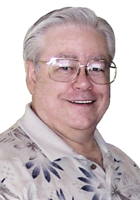
|
The Society of Folk Dance Historians (SFDH)
Improving Your Club's Business Meeting
[
Home |
About |
Encyclopedia | CLICK IMAGE TO ENLARGE |

|
IS IMPROVEMENT NEEDED?
How often have you heard the comment, "Well, that meeting was a waste of time?" Too often this statement has been made by club officers, committee people, teachers, and other club leaders. In true democratic fashion, these folks spend many hours in such business meetings.
Why would either a monthly business meeting or a special meeting called for some hurry-up decisions be labeled a time-waster? Very likely the meeting was not efficient in use of time, didn't reach the objectives it should have, or for some reason club members didn't take part in a democratic way.
WHAT ARE YOUR OBJECTIVES?
Let's first consider what objectives your particular meeting should achieve. Generally, such meetings should provide an opportunity for club members to:
- Keep in touch with each other and the club administration so the "right hand knows what the left hand is doing." It should spot duplication of activities and help co-ordinate programs.
- Learn about future plans of the club.
- Help develop policies and objectives and assist in planning operating procedures.
- Suggest answers to current problems through the use of "brainstorming techniques."
- Evaluate solutions to problems that are presented.
- Express grievances and bring up new problems.
- Keep the members posted on status of the progress of the club.
Business meetings that meet at least some of these objectives are not entirely a waste of time.
PLANNING THE MEETING
The president or presiding officer at the meeting must have a genuine conviction in the right and desire of the people to share in the destiny of their group. Otherwise, the meeting will be conducted in an artificial atmosphere.
Beforehand
If your meeting is to be a time-saver, do these things before it begins:
- Set date and hour as many weeks in advance as possible and be sure to notify all club members.
- Try to set the closing as well as the starting time for each meeting to permit early departure. This will require budgeting the meeting time according to an agenda.
- Plan the agenda in advance and, if possible, send all participants a copy. Don't include the items which concern only one or two people.
- Get information you'll need at the meeting beforehand.
- Make assignments for individual reports as far enough in advance to allow individuals time for preparation. Check their progress a day or two before the meeting.
At the Meeting
Having called your meeting, you can do these things to make it a time-saver:
- Begin on time and run your meeting according to Robert's Rules of Order, Newly Revised, a copy of which should always be at hand.
- Get off to a good start by quickly reviewing the agenda and suggesting a distribution of time that will let all items be considered and still adjourn on time.
- See that everyone has an opportunity to talk if he or she wishes. By the same token, keep anyone from monopolizing the discussion.
- Keep the discussion within the limits of your agenda. If it gets into the area of interest to only one person, postpone that part of it.
- Summarize the discussion frquently.
- If the discussion gets too heated, ask one of the participants to look up further information and report back at the next meeting.
- Set the date and time for your next meeting and explain any preparation needed for it.
- Have the meeting closed at the time indicated when you started.
If you've followed most of the suggestions above, chances are no one can say your meeting was a waste of time. Instead, it will have saved time for your club members by making them more efficient, helping avoid duplication of effort, and improving the morale of everyone.
The Agenda
The following is a suggested simple agenda:
- Call the meeting to order.
- Read the minutes of the previous meeting and their approval.
- Treasurer's report and presentation of bills.
- Reports of officers.
- Reports of standing committee chairpersons.
- Reports of special or select committee chairpersons.
- Unfinished business.
- New business.
- Fix the date, time, and location of the next meeting.
- Adjourn the meeting.
DOCUMENT
- Dick Oakes, an article.
Used with permission of the author.
This page © 2018 by Ron Houston.
Please do not copy any part of this page without including this copyright notice.
Please do not copy small portions out of context.
Please do not copy large portions without permission from Ron Houston.